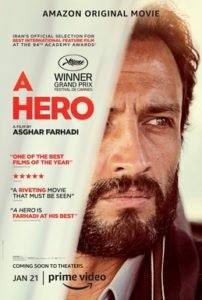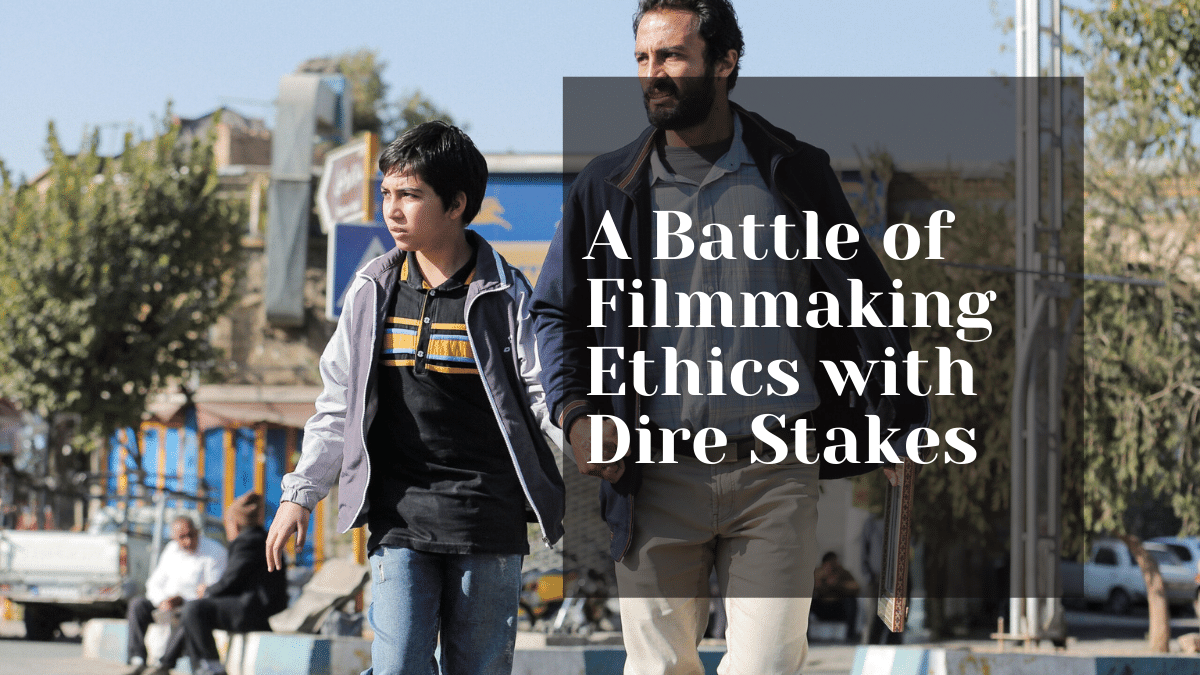Asghar Farhadi’s High-Stakes Plagiarism Battle

Update (4/4/22): The Iarnian court has found Masihzadeh not guilty of defamation. The court has not ruled on the plagiarism allegations themselves and it is still possible for Farhadi to appeal the decision.
Asghar Farhadi is a critically acclaimed Iranian director who, among his various awards, can boast about two Academy Award-winning films under his name. He is, without a doubt, one of the biggest names in filmmaking in both Iran and the international filmmaking scene broadly.
However, as per The Hollywood Reporter, he now finds himself in the middle of a high-stakes plagiarism battle. One where, if he loses, he could face prison time and be forced to turn over all profits related to his 2021 film, A Hero. If he wins, his accuser could face up to two years in prison herself, as well as 74 lashes.
The lawsuit was filed by Azadeh Masihzadeh who, according to the lawsuit, was a student of Farhadi in 2014. She was taking a workshop on filmmaking at the Karnameh Institute in Tehran. There, she was given an assignment to research and film a documentary based on the concept of “returning lost things”.
Masihzadeh found what she considered to be a unique story. The tale of a Mr. Shokri who, on a brief leave from a debtors’ prison, discovered a bag of gold coins and opted to return them rather than try to cash them in. Masihzadeh then turned that story into a 45-minute documentary entitled All Winners, All Losers, which debuted in 2018.
However, now Masihzadeh is claiming that Farhadi took the idea for her documentary and turned it into the fictionalized film A Hero, leading to an argument over who came up with the idea in the first place.
Farhadi contends he came up with the idea on his own much earlier and researched the story independently using media. However, Masihzadeh contends that there simply wasn’t much media to research other than local news reports and that she performed the research Farhadi used.
Both sides have their backers, with Farhadi receiving support from his film’s production company and distributor. Masihzadeh is supported by both the director of the Karnameh Institute, classmates in the workshop and her film’s subject.
The legal case is ongoing, but it has already been beset by a series of complicating wrinkles.
First of which is a document sighted by Masihzadeh in 2019 that reportedly says Farhadi is the originator of the concept. Masihzadeh doesn’t dispute the document’s existence, but says that she was pressured into signing it.
Second, even as Masihzadeh and Farhadi are suing each other for defamation, Shokri is suing Farhadi as well. In Shokri’s case, he is alleging that Farhadi defamed him in his fictional portrayal of his real-life events.
Finally, another student has come forward and accused Farhadi of doing something similar when they were at a similar workshop in 2011. However, in their case they felt it was not worth pursuing any legal action against Farhadi, saying in an interview with The Hollywood Reporter, “what he did with my story is his work, not mine.”
Where this case takes on even higher stakes than normal is the fact it’s playing out in Iran, a country that can hand out both corporal punishment and prison sentences in defamation cases. Masihzadeh faces up to two years in prison and 74 lashes, while it’s unclear what Farhadi faces other than the potential of prison time.
What all this adds up to is a dispute over the ethics of filmmaking, with potentially dire consequences for everyone involved in it. That alone make it worth taking a closer look at.
A Difficult Question
Note: The case is being litigated in Iran. However, I know very little about Iranian copyright law. As such, this analysis will be filtered through U.S. and European copyright law. Though much of copyright law is fairly standardized internationally, it may or may not apply to Iran.
Generally speaking, ideas and facts cannot be covered by copyright protection. As such, the facts surrounding Shokri’s story can’t truly be owned under copyright, meaning that it’s very possible for Masihzadeh to create her documentary and Farhadi to make his fictionalized movie without the latter infringing on the former.
But this isn’t solely a case about copyright infringement, it’s also a case about ethics and honesty. Masihzadeh clearly feels that she was wronged here, that she was denied credit for her contributions to Farhadi’s film. Farhadi, quite clearly, disputes that.
But there are other elements that complicate this case. One is the power dynamic between the two. Farhadi is easily the most famous director in Iran, Masihzadeh was a film student taking a class underneath him.
Farhadi has a clear power advantage over Masihzadeh and with that comes not just the responsibility to not abuse it, but the responsibility to not give the appearance of abusing it. If his film was based, even in a small way, on Masihzadeh’s work, it would have been wise to bring her in on the project, even if only in a token way.
Instead, he got her to sign a waiver regarding the work. That indicates, at the very least, he was worried about the appearance of plagiarism, but still chose not to involve her directly. He, according to Masihzadeh, used that power dynamic to pressure her, not help her.
Even if these similarities are just a striking coincidence, that represents an incredibly ill-advised way to handle them.
However, the odds of the similarities being just a coincidence strike me as very low. With so many people supporting Masihzadeh’s story, it seems likely that Farhadi did draw some inspiration from her work, even if his take on the story was wholly unique to him.
In short, Farhadi’s arguments aren’t particularly strong, at least when it comes to claiming he wasn’t inspired at all. But even if he is right and does win the case, it may not help in the long run.
Bottom Line
In the end, I don’t fully understand the copyright element of this case. Even if Farhadi did everything he is accused of, it likely wouldn’t qualify as copyright infringement, since ideas and facts cannot be protected by copyright.
That said, this really isn’t a case about copyright. It’s a case about ethics. It’s about whether Farhadi inappropriately used the work of a film student learning under him, whether he pressured that student into signing an agreement she did not feel was true, and so on.
To make matters worse for Farhadi, he is already a divisive figure in Iran. According to the original THR report, many in the country are upset he doesn’t use his international platform to more openly criticize the government. Farhad Payar, an actor and producer, likened Farhadi to a “tightrope walker” that was working to keep making movies within the system.
Though he has been critical of the government on at least one Instagram post, he’s also walked back the significance of his criticism in later interviews.
Ultimately, his fame has put a target on his back and his critics now have fresh ammunition to use against him. Whether this will impact his future success is unclear, but there is no real hope of him getting through this ordeal unscathed.
That said, the highest stakes are still to come, With both prison time and corporal punishment on the table, this is an academic conversation about filmmaking ethics that could have some serious real-world implications.
That alone makes it a case worth watching, even as the world reaches its own conclusions.
Want to Reuse or Republish this Content?
If you want to feature this article in your site, classroom or elsewhere, just let us know! We usually grant permission within 24 hours.
